Remembering Lorna Waite
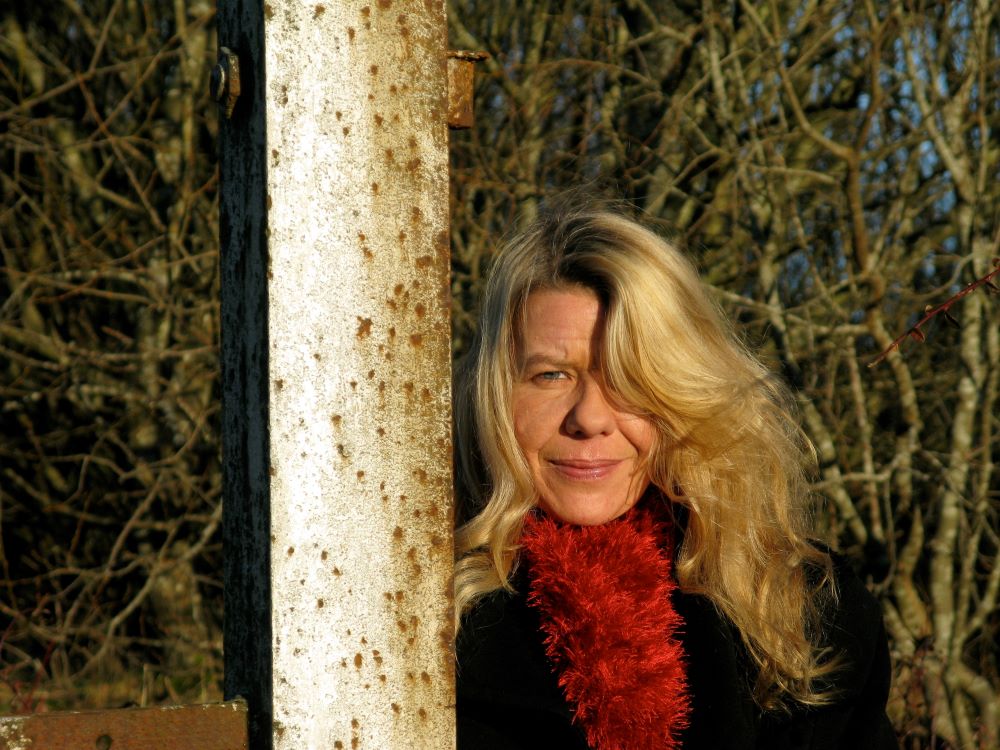 Dr Lorna Janet Waite
Dr Lorna Janet Waite
Born Kilwinning 27 August 1964. Died Edinburgh 12 August 2023
Lorna J. Waite grew up in the industrial town of Kilbirnie in Ayrshire. When she was a teenager, the economic and social heart was ripped out of her community by the closure of Glengarnock Steelworks. That governmental vandalism contributed to her conviction that an independent Scotland was the only way forward, all other routes stuck in the mud of an unreformable Westminster. The experience not just of community destruction but of the deliberate destruction of historical records became central to her work notably her poetry book, ‘The Steel Garden’ Poems by Lorna J. Waite – published by Word Power in 2011 (‘The Steel Garden’ Poems By Lorna J. Waite).
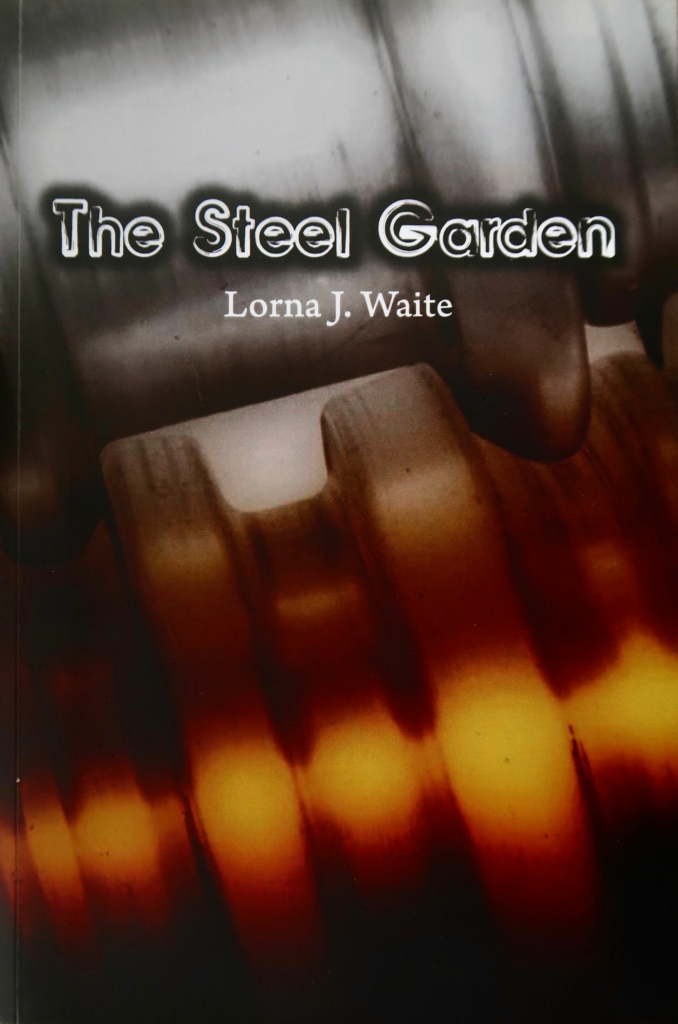
Valerie Gillies wrote of it: “in supple Scots Lorna Waite creates a way of holding hands with history, a workers’ history that needed her to write it down.” Like her poetry, her research carried out at the University of Dundee, which gained her a PhD in 2011, explored post-industrial folk memory, drawing on her personal insight into the destruction of industry and community. Her research had initial support from a Wingate scholarship awarded in 2002. Such concerns also deeply inform her fiction, which is, as yet, mostly unpublished.
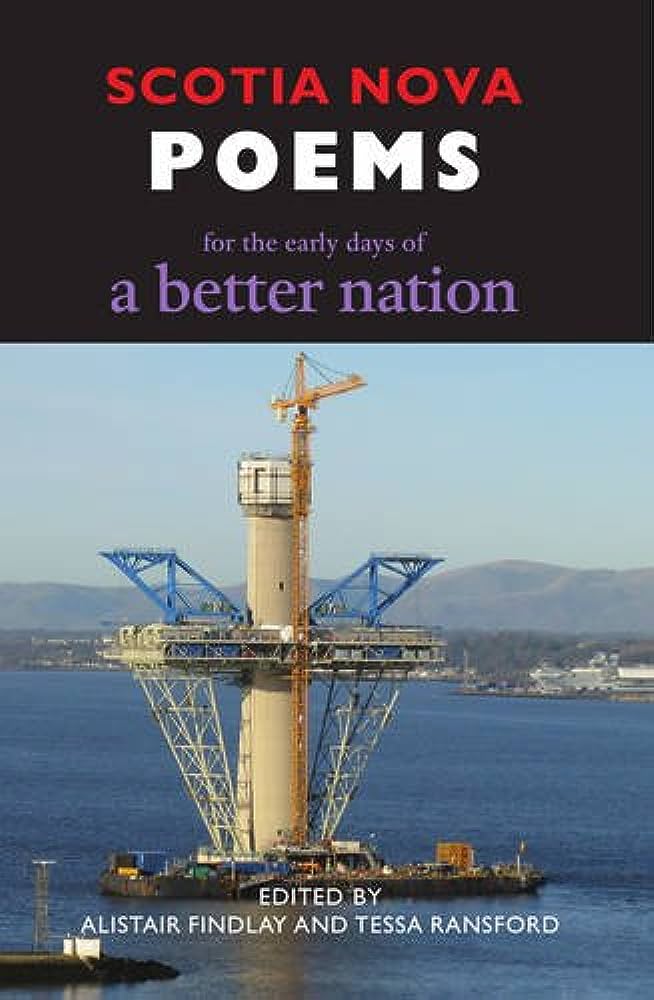
Another key influence was Lorna’s love of football, which led to her long-term membership of the Tartan Army. Football interacted with her writing in 2007 when she contributed to Football Haiku, edited by Alec Finlay as part of his iconic Pocketbook series, and the same year she made a related but more extensive contribution to 100 Favourite Scottish Football Poems, edited by Alastair Findlay. In 2014 a version of her poem The Ravens O’ Thingvellir was published in Scotia Nova: Poems for the Early Days of a Better Nation, edited by Alastair Findlay and Tessa Ransford.
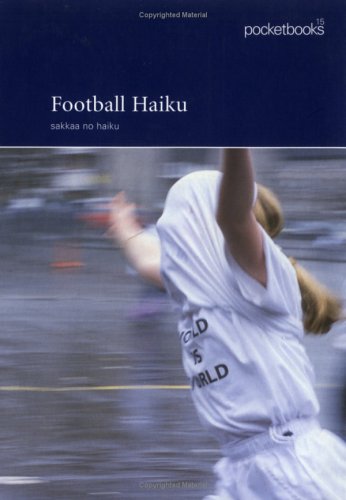
Most recently her poem in praise of the great Gaelic dictionary maker, Edward Dwelly, written in Scots with a translation into Gaelic, appeared in Cruinneachadh: A Gathering, edited and translated by Marcas Mac an Tuairnair, and published in 2023. Lorna was awarded a new Writer’s Bursary by the Scottish Arts Council, and she was writer in residence at Hugh MacDiarmid’s cottage at Brownsbank in 2011, where she drew intense inspiration not only from C. M. Grieve, but from appreciation of his wonderful Cornish wife Valda. As Jessie Kesson Fellow at Moniack Mhor in 2012 she took her work further.
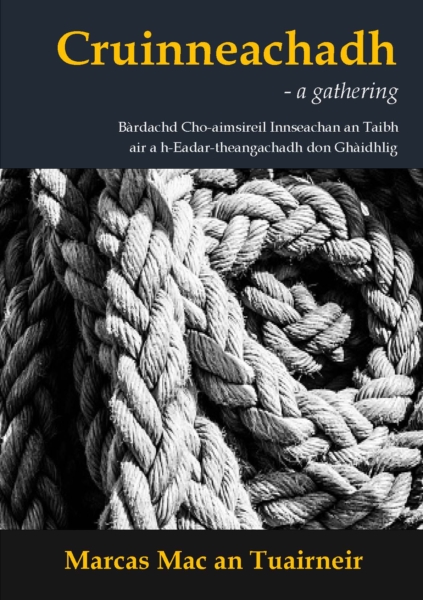
Lorna wrote in both Scots and English and given time might well have written in Gaelic also, for she had a long-term commitment to Gaelic as a learner, both at Home – Sabhal Mòr Ostaig (uhi.ac.uk) and in Edinburgh. She would certainly have become fluent had she been living in a Gaelic speaking environment for she was a good linguist, evident from her days at Garnock Academy, when on a school trip to Paris she decided to chat up French boys in a café rather than visit Notre Dame. She also had a good grasp of German and Latin, the latter a reminder that a knowledge of the classics has been fundamental to education in Scotland and that Garnock Academy at the time Lorna attended it was a shining example of that democratic intellect. The school also enabled Lorna to think more deeply about the local Ayrshire poet whose work she loved, Robert Burns, and no one recited Tam o’ Shanter with more insight and passion than Lorna. Among her teachers was the redoubtable advocate of Scottish literature John Hodgart.
She was the first of her family to attend university and at Edinburgh she had the good fortune to be taught by the outstanding social psychologist and visual thinker Halla Beloff. After her undergraduate degree in psychology, she was awarded an MSc with distinction in community education. She became a notable community educator setting up a gallery in Broxburn on behalf of Artlink, which brought special needs groups together with contemporary artists. A notable project, with Donald Urquhart, involved recreating a model of the solar system in the West Lothian landscape following the example of the Earl of Buchan, who founded of the Society of Antiquaries of Scotland in the late eighteenth century. That led to Lorna presenting on her work to the Society in 2004, under the title, To remain worthy of the land: the Earl of Buchan, the Kirkhill Pillar Project and the re-animation of Scottish cultural history. That was not simply a successful community project it reflected Lorna’s lifelong interest in astronomy, which led to friendship and collaboration with the then Astronomer Royal of Scotland, John Brown, and included a visit to Glenelg when that village was twinned with its namesake on Mars.
Her awareness of the importance of peace and social justice was rooted in her childhood. At the age of eight, while visiting relatives in New York, she was taken to the United Nations building, and the significance of world peace remained with her from that moment onwards. That peace commitment was expressed through her passionate resistance to nuclear weapons which led to membership of CND, and arrest for protesting at Faslane.
Her love of Scotland was further expressed both through her passion for football, not least as a member of the Tartan Army, and through by her wide travels in her ancient but reliable Volkswagen Polo, which took her camping, frequently to her beloved Glen Etive, and closer, to home, to the south side of Loch Earn. The joy she took in camping was part of her overall awareness of herself as part of the ecology of the natural world, not least as reflected in the words of Patrick Geddes or Duncan Bàn McIntyre. She was associated, through her friends Alastair McIntosh and Vérène Nicolas with the Centre for Human Ecology, and she was a strong ally of Mike Small’s ecological and cultural advocacy not least as expressed in a memorable event organised by Mike at Castle Toward.
Lorna had a distinguished period as an art critic and editor from the late 1980s, not least with Variant magazine, then edited by Malcolm Dickson. Her work was often linked both to Transmission gallery, and to the activities of the Free University of Glasgow, such as the Self Determination and Power event at the Pearce Institute in Govan in 1990. The previous year, 1989, she had been part of Richard Demarco’s memorable arts journey to Poland. Her writing was valued by two very different but equally radical photographers whose contributions are being more and more recognised today, namely Jo Spence and Maud Sulter. Maud commissioned an essay from Lorna in 1995, and, as a fellow writer of poetry in Scots, was a direct inspiration to Lorna’s own poetry.
There is much else that could be said but her commitment to dance, in particular to tap dancing at Dance Base in Edinburgh, and to the wonderful dance techniques of the Margaret Morris Movement at summer schools at Kilquhanity in Dumfriesshire, must be mentioned. She never played a musical instrument but made up for it by numbering among her close friends a number of very fine musicians, including the harp player Karen Marshalsay and the piper Allan MacDonald. Her musical interests ran from Bob Marley to Maria Callas. And central were, of course, the songs of Robert Burns.
She died, peacefully, at home in Edinburgh, a city she loved, in the presence of friends, as a result of cancer. In the last weeks of her life she was able to visit her spiritual home of Loch Etive and made her farewell to the landscape and culture of the Gàidhealtachd, which had been so much part of her life.

Farewell, Lorna. I will always remember our Gaelic classes with Ann Paterson at the University of Edinburgh, and sharing a tent with you on our trip to Lismore
I remember those classes with Ann Paterson and how much joy they gave me as a learner of the language of my parents – the first of my family not to have Gaelic, even if at times my ear was not attuned to Lewis Gaelic having heard Skye Gaelic from childhood.
Lovely tribute to a brilliant women x
Beannachd leat Lorna a ghràidh . Cho inntinneach agus beòthail do choinneachadh air iomadach caismeachd airson saoghal nas fheàrr.
Dh’ionnsaich mi tòrr nad chuideachd. x
I am only just finding out about Lorna but I will be reading her works now, especially her PhD thesis on Glengarnock Steelworks. My father worked there and I have felt that its history should be recorded. I find that Lorna may have already done a lot of work towards that end.
Beautiful tribute. I am very touched that Lorna was able to say goodbye to the land and culture she loved so much. I will always remember her warmth and passion.
A life well lived by someone who was clearly well loved by many who appreciated Lorna’s manifest talents, achievements and simple humanity. When an independent Scotland gets around to putting up blue plaques to people who have done our country proud, her name will surely be high on the list.
I liked Lorna. Of all the writers who resided at Valda’s Brownsbank, she was the one who, after Valda, made it most like a home.
brownsbank – au clair de la lune
you lift the curtain and see the rising moon
brighten with pure light the water and the field
and flow like breath over window and door
it will move through its cycle
full moon and crescent again
calmly
beyond our wisdom
changing old to new
but for now it brightens the candy burn
singing perhaps a macdiarmidean song
so far away in space
its breath so close on the night air
for lorna waite
September 2011
Sorry to hear of her passing. First met her at the Pierce Institute in Govan when Noam Chomsky was the guest of honour in 1990 for Common Sense and Self Determination.
A beautiful tribute for a fine lady. I was so sorry to hear that she had died.
Lorna contributed an article on the ‘Self-Determination and Power’ event in Govan to ‘Radical Scotland’ No. 44, April/May 1990.
Thank you so much Murdo for the portrait. Some achievements I was aware of from our too few meetings. Others fill out the shadows, the half tones. I did have the pleasure of reading Lorna’s stories based on her Ayrshire upbringing. Ringing direct narratives full of the vitality that comes from knowing and loving place and it’s language. Intimacy and heart and intelligence brought these stories as well as the poems to their forms. Hoping these stories will find new readers. For now I’ll remember the ararchic moments and Lorna’s astonishing power to engage folk, city or shire.
“Thought for the Day” – broadcast at 0723 hrs, 29 August 2023 – “Good Morning Scotland”, BBC Radio Scotland
from Quaker and author Alastair McIntosh
Good morning.
Yesterday marked the 60th anniversary of perhaps the greatest speech of modern times, Martin Luther King’s I have a dream, which called into being the vision of a land whereby the sweltering “heat of oppression will be transformed into an oasis of freedom and justice.”
I have a dream, he said, whereby our children “will not be judged by the colour of their skin but by the content of their character.”
I have a dream.*
King’s life was cut short. But for me, yesterday also marked another passing, another life cut short, albeit by an illness, and the funeral of a friend, the poet Lorna Waite, who had dearly loved the life and work of the black civil rights activist. Between the two, they set me thinking of the ways in which a life lives on beyond its years.
For Lorna was born into a working-class family in Kilbirnie in 1964, and the poetry she leaves behind testifies to a bigger picture of our lives, urging us to, “Learn yer stories / Speak them tae the land / Listen and hear the / Water teach ye.”**
Her husband, Murdo Macdonald, a specialist in Scottish art, marked her passing with his own poem, about their final outing to Loch Etive. The dream lives on, it keeps unfolding, because –
“In the absolute courage of your farewell / You held a pinecone as if it were a lover / Your fingers taking in its knurled spirals / Woven like you into the rhythms of the world.”
I’ve often pondered: what’s the connection between mere thought, and depth of prayer? Dream – vision – prayer – these all weave us into a consciousness beyond the rational, where our lives are held within a greater hand.
Dream on, Martin Luther King. Dream on, Lorna Waite. It’s up to each of us, now, to work the beauty of your soaring dreams into the rhythms of the world today.
* NPR, MLK’s “I have a dream” text and audio: https://n.pr/3YPySa5
** “The Ravens o’ Thingvellir”, Scotia Nova, poems edited by Alistair Findlay & Tessa Ransford, Luath, 2014.
(The broadcast can also be listened to for the next 30 days at about 1 hr 23 mins in at https://www.bbc.co.uk/sounds/play/m001q03s )
Thanks Alastair
Beautiful tribute
I’d love to read Murdo’s poem
Cheers
Martin
Charlton
Bunanta
Here’s the full poem, Martin. Murdo sent it to me to make of it what I would when I contacted him about doing the broadcast. Thought for the Day is a “faith” reflection on current affairs. I saw a news item about MLK and it felt like a fitting “peg”, as they say; and it was only on sending him the first draft to check for tone and accuracy that he said how much she’d admired King. I’ve cut and pasted what follows and hope the 2×4 format comes through OK. This, as written from their last visit to Loch Etive, three weeks before Lorna passed.
On the seashore you quoted Tagore
And we met again as children
Knowing with an unusual clarity
That this would be the last seashore
On which we would meet one another
In the absolute courage of your farewell
You held a pinecone as if it were a lover
Your fingers taking in its knurled spirals
Woven like you into the rhythms of the world
Respect from Edinburgh CND
I had the privlege of knowing Lorna. I remember happy times with her in Edinburgh Campaign for Nuclear Disarmament and various feminist informed events. Thank you for this lovely tribute which captures some of the very special person that she was.